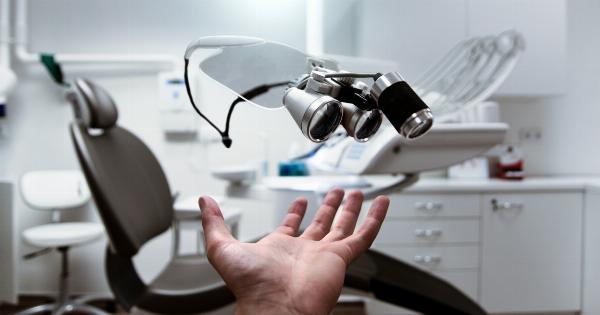For many people, visiting the dentist can be a stressful experience. The sound of the drill, the sensation of cold metal instruments in the mouth, and the fear of pain can all contribute to dental anxiety.
But why do some people fear the dentist more than others? Researchers have been exploring this question for decades, and now they believe they have found some answers.
What is Dental Anxiety?
Dental anxiety, also known as dental phobia, refers to the fear or anxiety that people experience when they visit the dentist.
It is estimated that up to 20 percent of Americans have some degree of dental anxiety, and for some people, the fear can be so great that they avoid going to the dentist altogether. This can have serious consequences for their oral health, as dental problems that are left untreated can become more severe and more difficult to treat.
The Causes of Dental Anxiety
The causes of dental anxiety are complex and multifactorial, and can vary from person to person. Some common causes include:.
- Past Negative Experiences: Many people who fear the dentist have had a past negative experience, such as a painful or traumatic dental procedure. These negative experiences can be difficult to forget, and can create a lasting impression of dentistry as a painful and scary experience.
- Fear of Pain: The fear of pain is a common cause of dental anxiety. Many people associate dentistry with pain and discomfort, and are afraid that they will experience pain during their treatment.
- Loss of Control: Some people feel anxious or uncomfortable when they are in a situation where they feel like they are not in control. This can be a particular problem for dental patients, as they may feel powerless when they are in the dentist’s chair with their mouth open.
- Embarrassment: Many people feel embarrassed or ashamed about the state of their teeth, especially if they have not been to the dentist in a long time. This can make them feel uncomfortable or self-conscious during their dental check-up or treatment.
- Generalized Anxiety: Some people are simply more prone to anxiety than others, and may experience anxiety in a variety of different situations, including the dental office.
The Latest Research on Dental Anxiety
Recent research has shed new light on the causes of dental anxiety.
In a study published in the journal Science Advances, researchers from King’s College London and the University of Maryland School of Dentistry identified a specific gene that is associated with increased dental anxiety.
The study, which involved more than 1,500 dental patients, found that people with a variation of the gene TRPC5 were more likely to experience dental anxiety than people without the gene variation.
This gene is involved in the regulation of calcium in the brain, and the researchers believe that it may influence the processing of fear and anxiety in the brain.
Other recent research has also pointed to the role of genetics in dental anxiety.
Another study published in the journal BMC Oral Health found that dental anxiety was more common among people with a family history of dental anxiety, suggesting that there may be a genetic component to the condition.
Treating Dental Anxiety
Fortunately, there are many different strategies for managing dental anxiety, including:.
- Relaxation Techniques: Strategies such as deep breathing, meditation, and visualization can all help to reduce anxiety and promote relaxation.
- Sedation Dentistry: Sedation dentistry involves using medication to help patients relax during their dental treatment. This can be particularly helpful for people who have severe dental anxiety.
- Cognitive Behavioral Therapy: Cognitive behavioral therapy (CBT) is a type of psychotherapy that helps people to identify negative thought patterns and replace them with more positive and constructive thoughts. CBT can be an effective treatment for dental anxiety.
- Distraction Techniques: Using distraction techniques such as listening to music, watching TV, or focusing on a pleasant memory can help to take the patient’s mind off of their dental treatment.
- Communication: Good communication between the dentist and the patient can help to build trust and reduce anxiety. Dentists who are sensitive to their patients’ fears and concerns can take steps to make the dental experience less stressful.
Conclusion
Dental anxiety is a common problem that can have serious consequences for oral health.
While the causes of dental anxiety are complex and multifactorial, recent research has identified a genetic component that may help to explain why some people are more prone to dental anxiety than others. Fortunately, there are many different strategies for managing dental anxiety, and by working closely with their dentist, patients can find the right approach to help them feel calm and comfortable during their dental treatment.






























